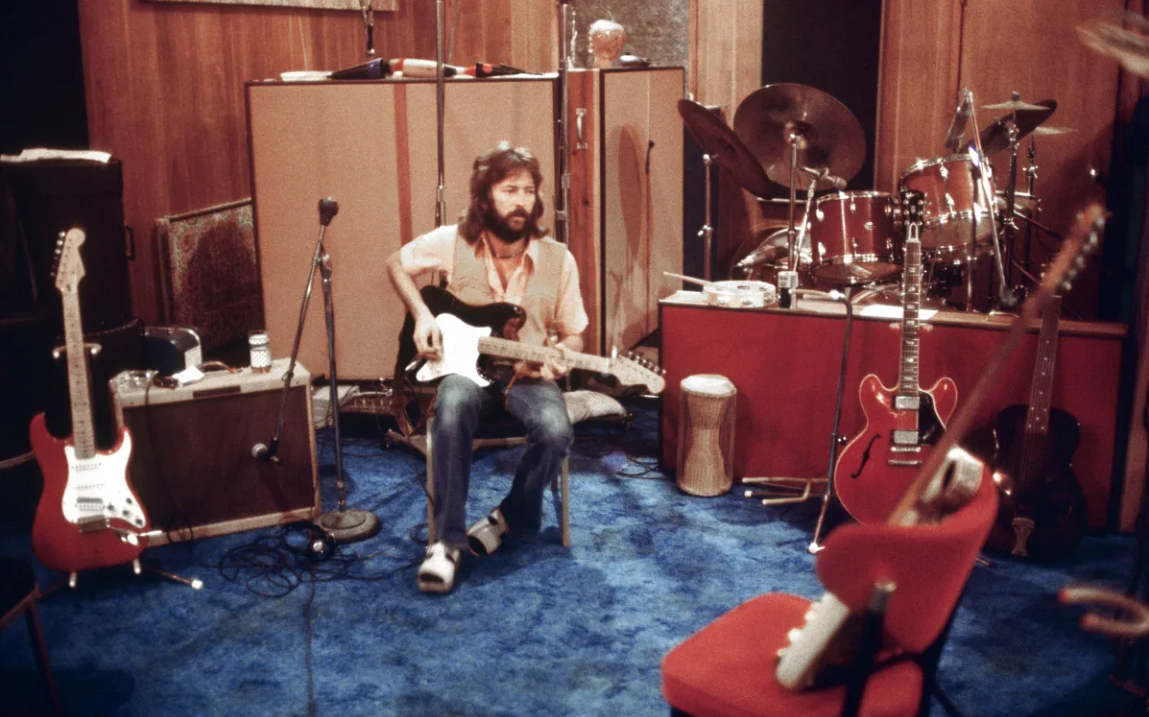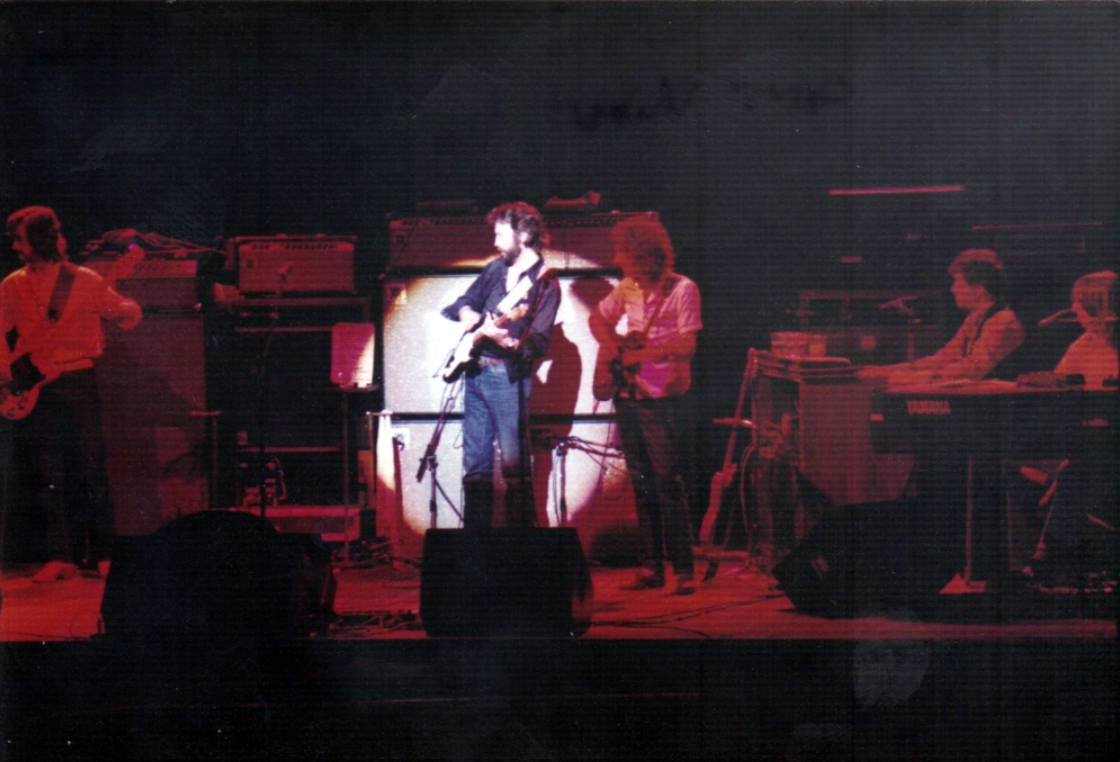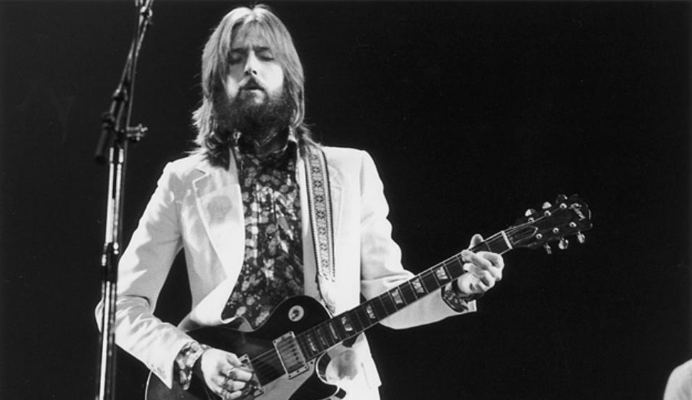The Majesty of Blues: A Deep Dive into "Little Queen of Spades" by Eric Clapton
(watch the video below)
"Little Queen of Spades" is a timeless blues classic by Eric Clapton, originally written by Robert Johnson, a pioneering figure in the genre. This 1937 composition has been reimagined and revitalized by Clapton, showcasing his mastery of the blues guitar and vocal delivery. In this comprehensive analysis, we delve into the historical context of the song, its lyrical themes, musical structure, and the enduring influence of both Clapton and Johnson on the blues genre. Through examining the evolution of "Little Queen of Spades," we gain insights into the enduring power of blues music as a form of expression and cultural heritage.
Eric Clapton's rendition of "Little Queen of Spades" stands as a testament to his profound connection with the blues genre. The song, originally penned by the legendary Robert Johnson, has undergone numerous interpretations over the years, but Clapton's rendition holds a special place in the annals of blues history. With its haunting lyrics, intricate guitar work, and soulful delivery, "Little Queen of Spades" encapsulates the essence of the blues tradition while showcasing Clapton's unique style and virtuosity. In this essay, we embark on a journey to explore the multifaceted layers of this iconic song, from its origins to its enduring legacy in contemporary music.

To truly appreciate the significance of "Little Queen of Spades," it is essential to delve into the rich history of the blues genre and the life of Robert Johnson. Born in 1911 in Mississippi, Johnson's brief yet influential musical career left an indelible mark on the blues landscape. His innovative guitar playing and emotive vocals set the stage for future generations of blues musicians, including Eric Clapton.
Robert Johnson's original recording of "Little Queen of Spades" in 1937 served as a blueprint for countless blues artists who followed in his footsteps. The song's themes of gambling, love, and fate resonated deeply with audiences during the Great Depression era, offering solace and reflection amidst economic hardship and social upheaval. Johnson's lyrical prowess and masterful guitar technique showcased the full potential of the blues as a form of personal expression and storytelling.
Eric Clapton's affinity for the blues can be traced back to his early days as a guitarist, where he drew inspiration from Johnson, Muddy Waters, and other luminaries of the genre. Clapton's rendition of "Little Queen of Spades," featured on his 2006 album "Me and Mr. Johnson," pays homage to Johnson's original while infusing it with his own unique style and sensibility. From the opening notes of Clapton's guitar to his soulful vocals, every aspect of the song reflects his deep reverence for the blues tradition.

At its core, "Little Queen of Spades" is a showcase for Clapton's impeccable musicianship. The song's structure is rooted in the classic blues format, with a 12-bar chord progression and a distinctive shuffle rhythm. Clapton's guitar solos are a highlight of the track, demonstrating his technical prowess and improvisational skill. The interplay between Clapton's guitar and vocals creates a sense of narrative urgency, drawing listeners into the world of the song's protagonist.
The lyrics of "Little Queen of Spades" explore timeless themes of love, loss, and redemption. The protagonist's lamentations over his ill-fated romance and compulsive gambling mirror the struggles of many blues musicians during the early 20th century. Yet, amidst the despair, there is a glimmer of hope, as the protagonist vows to change his ways and seek a better life. This juxtaposition of darkness and light is a hallmark of the blues tradition, reflecting the complexities of the human experience.
"Little Queen of Spades" continues to resonate with audiences around the world, serving as a testament to the enduring power of the blues. Eric Clapton's interpretation of the song has introduced a new generation of listeners to the music of Robert Johnson and the rich cultural heritage of the blues. Through his mastery of the guitar and heartfelt delivery, Clapton pays homage to the giants of the past while forging his own path forward in the world of music.

In conclusion, "Little Queen of Spades" stands as a timeless testament to the enduring legacy of the blues genre. Through its evocative lyrics, intricate musical arrangement, and soulful delivery, the song encapsulates the essence of the human experience and the universal themes of love, loss, and redemption. Eric Clapton's interpretation of the song pays homage to the blues tradition while reaffirming its relevance in contemporary music. As we continue to navigate the ever-changing landscape of popular culture, "Little Queen of Spades" serves as a beacon of authenticity and artistic integrity, reminding us of the transformative power of music to touch the soul and transcend the boundaries of time and space.
Video
Lyrics
Let's sing along with the lyrics !
She is a little queen of spades
And the men will not let her be
Said she is a little queen of spades
And the men will not let her be
Everytime she make a spread
Oh fair brown, cold chills run all over me
Gonna get me a gambling woman
If it's the last thing that I do
Gonna get me a gambling woman
If it's the last thing that I do
A man don't need a woman
Oh fair brown, that he got to give all of his money to
Everybody said you got a mojo
'Cause baby, you've been using that stuff
Everybody said you got a mojo
Baby, you've been using that stuff
Got a way trimming down
Oh fair brown, and I mean it's most too tough
Little girl, since I am the king
Baby, and you is the queen
Little girl, since I am the king
Baby, and you is the queen
Let us put our heads together
Ooh, fair brown, and we can make our money green



